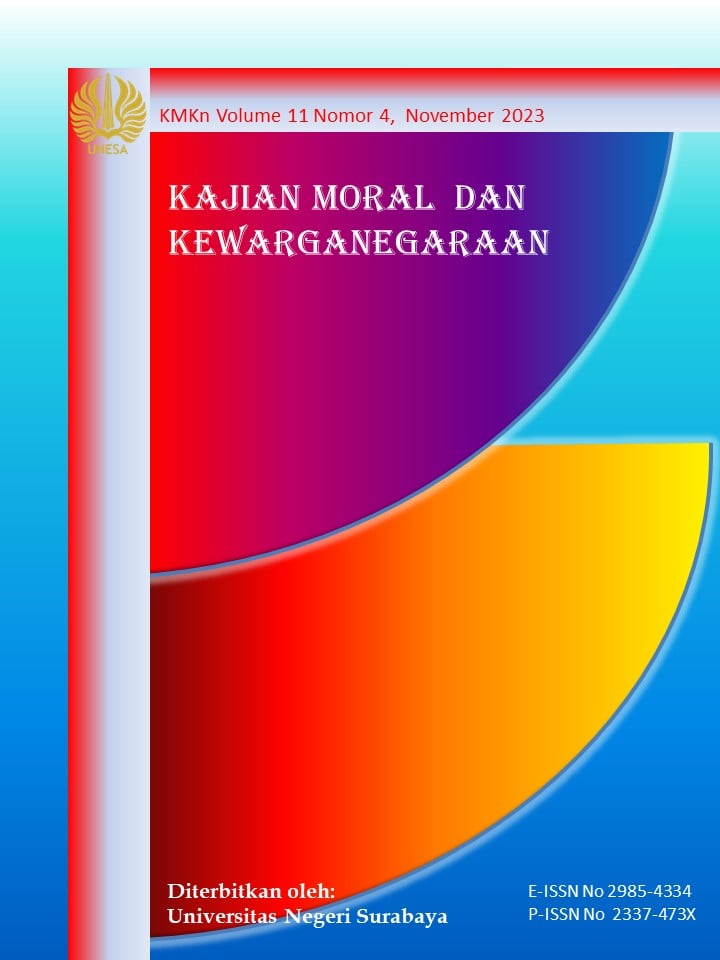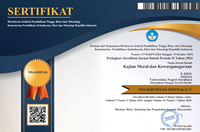TINGKAT NASIONALISME WE-A KPOPERS (PECINTA KOREAN-POP) KEDIRI
Keywords:
Nasionalism, Korean-Pop, CommunityAbstract
Recently, Korean culture has been in great demand by Indonesian people, especially Korean-Pop. Globalization is one of the causes of the rise of Korean-Pop culture in Indonesia. This is because technological developments have made Korean-Pop easily accessible to everyone, so this has resulted in Korean-Pop having many fans, especially in Indonesia. There are quite a lot of Korean-Pop fans in Indonesia, some of them have even formed associations or communities. One of the Korean-Pop communities is WEA-Kpopers. It is feared that there are so many Korean-Pop fans in Indonesia that this could be a threat to the decline in the level of nationalism in Indonesia. This research aims to describe the level of nationalism of the WE-A Kpopers community. This research uses quantitative research methods with a descriptive approach. This research uses a saturated sampling technique. The sample in this study amounted to 110 people. The data collection technique in this research is by distributing questionnaires. The results of this research show that the level of nationalism of the WE-A Kpopers (Korean-Pop Lovers) Kediri community has a high level of nationalism, namely 84 people (76.4%) in the high category, 26 people (23.6%) in the medium category and none of them are in the low category. Looking at the indicators of nationalism, it is known that the indicator of love for water is the highest indicator and the indicator of tolerance is the lowest indicator.
Downloads
Downloads
Published
How to Cite
Issue
Section
 Abstract views: 173
,
Abstract views: 173
, PDF Downloads: 450
PDF Downloads: 450





